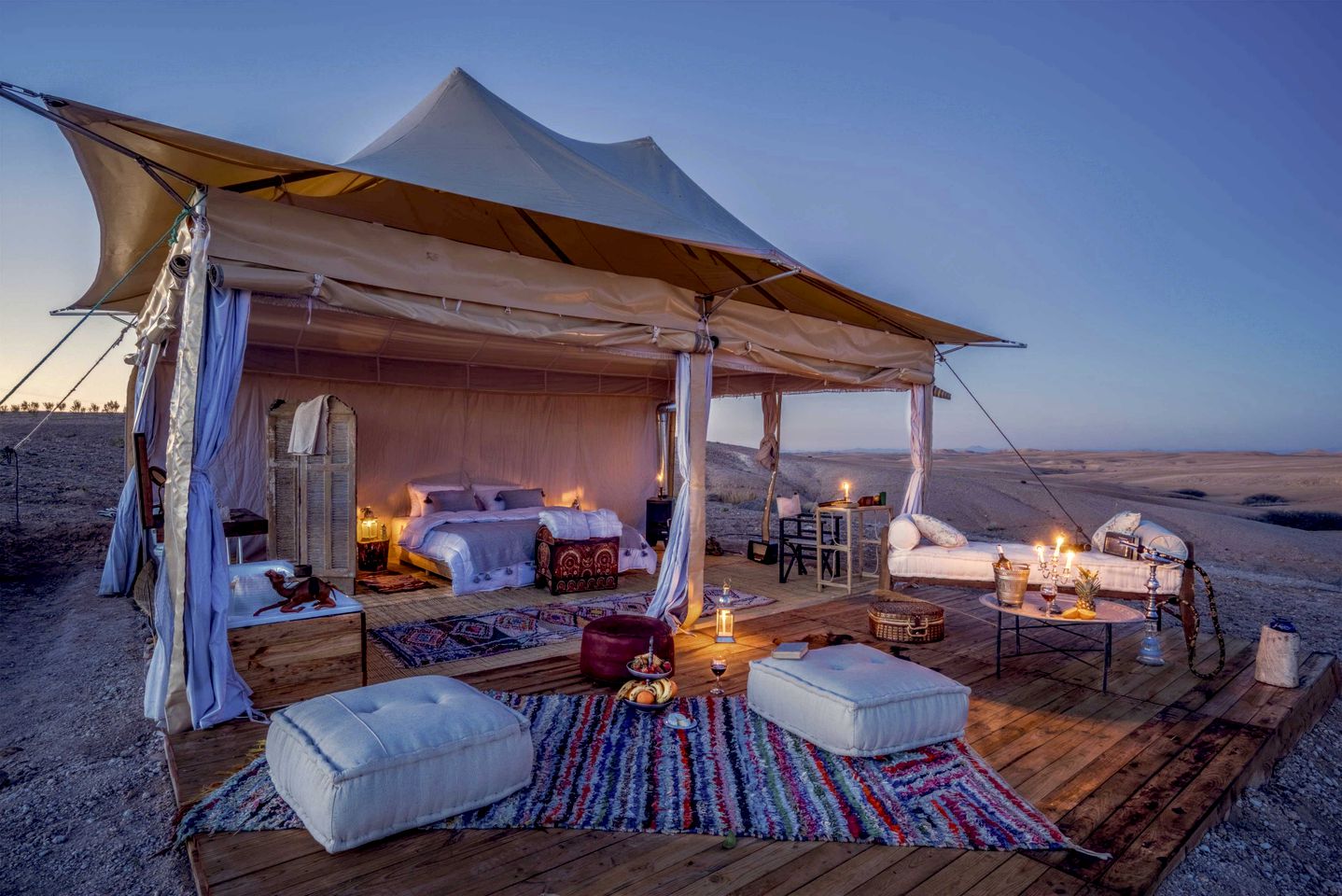-
Posts
29 -
Joined
-
Last visited
Profile Information
-
Gender
Not Telling
Recent Profile Visitors
19909 profile views
GiraffeCamp's Achievements

Junior Member (1/3)
9
Reputation
-
Thanks! I've always opened it up like that when I'm too hot or sharing on an air mattress, but I've sometimes been too cold that way. It's hard to tell if that was from another person pulling the covers off or my own moving around. I think it will be different on a cot! And the extra laying over the side will probably function quite well at trapping in heat. I think based on my own experience, the two-bag method is what I'll try first. I don't move much when cold and on the cot. Insulating the bottom is probably my biggest opportunity for improvement. I'll take a moving blanket for that. I'm feeling much more prepared to go with the flow. This brings up a great topic! On my last chilly (cold to me) campout, I put my jacket over the summer-weight sleeping bag, over my feet. Now I know how to warm up my feet from the posts here but I'm wondering if the jacket would generally be more useful on top of the sleeping bag, as a layer inside it, or worn. Ingenious! This is the kind of thing you only learn from people who've lived it. Thank you!! I will take all of these to heart. Thank you!! This is extremely helpful! Thank you!!
-
The insulation going under the hammock and not between the hammock and person is making perfect sense now. Never considered it but I'm following! Perfect!! I have a little fold-up picnic-style floor mat but can't imagine it gives much insulation. I can afford a $5 second layer. Would it matter which order they're put down in? I'd think moving blanket closest to the ground, thin plastic one above it. I'm totally following. What about keeping your body heat trapped inside the bag?
-
I remember the first time I learned how to tie a scarf for functional use. It had always been a fashion accessory before that moment. There's a certain level of knowledge that just has to come through experience. This is very helpful! And hilarious that you assume I likely have a base layer, wool layer, and fleece layer when I have none of those things. My water-resistant coat doesn't even have a hood. 😆 Now I know what to look for and how to assess them. Thank you! Ah! Super useful info! The food and fire advice is particularly insightful. Thank you!! I'll be sure to enjoy it while I can! Deification it will be from now on! St. Maximos once said, “He who aspires to divine realities willingly allows providence to lead him by principle of wisdom toward the grace of deification. [...] For since God is goodness itself, he heals those who desire it through the principles of wisdom, and through various forms of discipline cures those who are sluggish in virtue.” Seems fitting. I've got a Fieldbook on your recommendation and will be sure to cover all these resources. Thank you!! I saw one flashlight reviewed consistently bad for cold weather but did not make the connection to all electronics. I'll be sure to have an insulation layer for my cot and will take the rest to heart. I'll probably come back after reading to ask another more educated round as I figure out logistics! Thank you!! Ingenious. And readily accessible around me. Thank you! Ahhh! Perfect. Will do. Thank you! Fantastic reality check. Thank you! I hope your family matters are benefitting from your presence. Thank you!! Do you think ground insulation or cot insulation is more important if I'm sleeping on a tall cot? I assumed the latter, treating it kinda like a hammock.
-
It looks like I'll be car camping in temps around 10-20F overnight. This will not be a common thing--maybe once every few years at most. I don't want to spend much on something so rare but do want to make sure I actually have what I need. I suspect the underlayers available around me won't touch it, but I have no way of figuring out what is normal. Would you please give me the essentials run-down?
-
I think this idea of priorities and money investment is misguided. People have predictable needs: connection, physical well-being, honesty, play, peace, autonomy, meaning. If those in your community are consistently choosing a sports team, it probably means more of their needs are met there with less effort. I know sports parents talk regularly about the sense of camaraderie and teamanship, about the active sharing of values, about the positive physical play, about the time hanging on the sidelines bonding with other families. Cub Scouts, instead, often feels like assisting in a classroom even if the activity takes place outside. There's tedious organizing and arranging, administration, trainings, and then there's no bonding or camaraderie. It's burdensome and doesn't add value in the list of needs. Why would people prioritize doing more of that? I'd say it doesn't need more business leaders as forward-facing positions like cubmasters, it needs more people like the coaches who are able to lead a "family." Put the businesspeople in the committee supporting the cubmasters and den leaders. Then support the forward-facing people in getting out in their areas of interest and competence so that they can authentically share of themselves so others are happy to hang around and help out because their needs as a family are getting met with ease.
-
I'm happy to do so and want to clarify that my experience is in shooting sports in general; I do not have experience with BSA being any different.
-
It is my experience that there are many demographics of people who are hesitant to attend firearms training programs because they believe those programs will be led by someone who will not accept or respect them and their circumstances/motivations/needs. I know from extensive personal experience that this includes women, people of color, those who are not heterosexual or gender-normative, those who have strong liberal political opinions, sometimes those who are either end of the socioeconomic bell curve, and those with disabilities. It is also my experience that explicitly stating that these people are welcome and included goes a long way toward making that reality true. Then going on to listen to and accept their needs and to not dismiss them but to instead empower and engage them bridges the gap. For example, women's bodies often require different stances, postures, and equipment. Accepting this and learning what's available, listening to women and what's worked, connecting with those who have more experience and giving them a platform that is not a ghetto or tokenization but an equal footing, takes that intention of inclusion and makes it a reality in an individual and tangible way.
-
I follow now. Back then, most of those boys' dads had been in the military, most probably drafted or signing up under the impending threat, and they had their own profound traumas and little empathy for the discomfort the boys felt over nude showering when they had to face and move through the same discomfort in the context of death and destruction, not recreation. They feared their sons being left behind, beaten up, or ostracized by a culture requiring conformity and thought the pain of shame preferable to the violence that their expressions of vulnerability and individuality could instead bring. The parents, basically, were controlled by cancel culture and the fear their kids were next on the chopping block. I think that is tragic and nothing to hold up as a model. And I assume the boys who had no such experiences generally found this scenario to be problematic, as so many here express, Skeptic included. I just took a poll of everyone within earshot, giving them no setup except that which was presented here, and 100% of people of a multitude of ages said in some way or another they would sympathize or empathize with that boy and expect to work with him and none could conceive of a reason for annoyance or frustration though much older people did express that they would expect little to no mercy from others back in the day, one sharing how small kindnesses would be arranged in private to avoid their vulnerabilities being known. Another told me of that exact scenario in Boy Scout camp back in the day, with the boy having a similar situation and not joining the others in the shower then a scoutmaster quietly coming and pointing out the need to shower and arranging a time for private showering. It was happening even then. So I think it is not the times and people that have changed but that we do not have a generation of traumatized fathers responding to the natural vulnerabilities and growth of their kids. One where it is safe to ask why things are the way the are and if there is a way that can meet more needs, no longer hiding this conversation away out of fear of cancellation.
-
I'm not sure if we're agreeing, disagreeing, or neither. If a kid told a leader, then or now, that he felt intensely uncomfortable showering in front of others, would you have a problem with that leader troubleshooting to get him to the shower? "I don't care if you go first or last, if you and a buddy take turns holding up a towel for each other, if you shower with your swim shorts on and reach under to get it all clean, whatever you need to do. But it isn't healthy to swim and not shower because you can get rashes and infections, and that would be particularly difficult if you got it in those sensitive spots from not washing them. How can we get you clean?" If some version of that happened in your presence, what would go on inside your head? Would your thoughts go to ridicule, shame, coercion, force, or find it ridiculous pandering? Would you not care because your goal is swimming and showering and whatever makes that work is fine? Would it change things if the child just took it on himself and used a strategy to accommodate, such as taking turns holding up a towel with a friend, if he actively brought it to the leaders to complain without a suggestion, or if he avoided the issue and was therefore in a situation where the leader had to address it with him? Would it change things if you knew that child had identified medical differences, came from a different culture, followed a religion that emphasized modesty, or some other known external reason for the difference? And if it would change things, would it make you more inclined to work with the child or more inclined to dismiss it as an unimportant bother that doesn't affect the majority of scouts, so if he wants to be with these scouts then he should adopt their culture and practices? Aside from your internal thoughts on the matter mentioned above, what would you externally be inclined to do? To say and act in this situation? Would what you say and do directly with the child be different from what you would say and do later in the privacy of conversation with the other leaders? For example, might the boy perceive you as supportive for some reason while you would tell the leaders you thought it was ridiculous? Or vice-versa. Do you believe that the youth's conformity and compliance to your direction is a greater priority than the youth acting consistently with his own values such as his sense of modesty and bodily autonomy? Do you believe a conversation on trying to meet both obedience and autonomy is always appropriate or that when given a direction, short of profound safety issues, a youth should obey immediately independent of his thoughts, values, culture, and needs? I'll be happy to answer the same. It will definitely bring clarity to the topic of what we each believe to be core issues and therefore what we would consider "over-reach."
-
He used the words intimidated, forced, embarrassing, and trauma to describe his experiences of public showering over the course of his pubertal years. He did not believe he had an option to shower in his swim trunks or to change under a towel, behind a curtain or towel held by a friend, or in a private corner, for example. That might be his own lack of imagination and nothing to do with the overt culture. However, that culture did not educate and empower him to live in accordance with his own values so there is room for improvement even if the showering issue isn't institutional. Others later expressed a systemic culture of coercion on this topic so it does appear to be something widespread that could be improved, passively through architecture and actively through culture. The issue is 1) was it abusive? Yes, it quite possibly was abusive to deny him his bodily autonomy after he communicated the need. Hiding, shut-down, avoidance, and verbal expression count as communication. Sometimes that communication goes unnoticed which is an education problem lacking attunement and sometimes it is noticed and shamed, telling them to stop it and literally pushing them into the activity, possibly by the adult himself feeling embarrassed and stuck in the face of the culture and his own needs and lack of imagination. If it was only his lack of imagination, that he silently went along with an accepted culture others had no problem with, despite personal convictions to the contrary but no negative consequences for acting on his convictions, it would be tragic but not abusive. If he tried to speak up and was disempowered, shamed, and forced as he reports then it was a problem then and is a problem now that needs healing and a healthy way forward. The fact that it was not the same degree of abuse others endured, and that he did not have the language to consider how this affected him before this point, does not somehow negate the clear trauma he tells us he endured for years and the opportunity he now has to process it and help to provide a better way forward. 2) Does it being abusive mean it should be in the current lawsuits? Not necessarily. There are degrees of neglect and abuse and the lawsuit is addressing an institutional culture that allowed molestation and rape to propagate without sufficient safety and change. If his experience is a part of that, it might find a place there. Not all abuse fits into that category and most does not. 3) Does the fact that it happened with showers or swimming or camps make those places inherently unsafe for sexual integrity? It is worth considering with an open mind with the likelihood being that it was not the place but the culture. However, it might point to opportunities for improvement that would benefit all such as explicitly stating that pre/post swimming showers can be in swim clothes, to have designs which allow for privacy and autonomy in a sustainable fashion (how many of us find shower curtains ripped or missing? a design plan relying on that would probably not be sustainable), and to allow open problem-solving for ways to improve. 4) If people are pointing out traumas, coercions, and abuse and are being ignored for their lack of frequency (it hasn't happened here, but an example would be saying precocious puberty is rare and hardly deserves discussion or change to accommodate with empowerment instead of disempowerment), and the stake holders are resistant to change despite knowing of the problem and the opportunity to improve, then should we draw bigger circles around those places to assure safety? Absolutely. Maybe that camp can no longer have any communal showers since they obviously cannot safely manage that, and the cost of building individual shower houses is on them. Or maybe if they are adamant enough, they don't have summer camp at all any more until they make adequate changes. Least restrictive, but not compromising safety and integrity in any way. 5) If one place has shown an unwillingness to be safe, should all places have a similarly wide circle drawn around them even if they can safely manage with less restrictions? Absolutely not. The need is safety, not policies that hope to proxy it. If they have a track record of safely navigating the issue through a combination of culture, education, architecture, whatever then they don't need onerous restrictions. Administration showing continuing safety is a burden that should be streamlined but is a meaningful necessity that must be included. I believe this is where much of the frustration comes in today with the idea of over-reach. If the issue is intimidation over showering then the need is a culture change on showering, not the blanket removal of all showers. 6) What role does National play in providing, assessing, and maintaining not only the safety but the culture of Scouting? And are they being effective in meting these goals? For example, they place not tenting with parents under Safety and not under Values (independence) in order to set policies around it. That is a poor proxy for safety as it does not protect kids from being abused, it just tries to limit the amount of abuse happening in a place that could cost the organization. And it places a lot of new safety risks on parents (sexual abuser status for tenting with their own child) and on children who are disabled through an inappropriate level of independence/abandonment. Why do they not see this as a Values issue, which could better cover all involved through simultaneously removing abusive adults and empowering children with limitations? Is it because they do not have an active assessment process for maintaining values and culture at the district and unit level? That could be an avenue for improvement that meets everyone's baseline needs. A revamp of Journey to Excellence could be considered. Once the actual issue is being addressed, needs and opportunities become evident without any need for over-reach.
-
But my argument is not that a place or occasion has had abuse so should be avoided. My argument is that his experience of feeling coerced and shamed into exposing his nude body against his will was wrong, no matter the date or context, and that we should not be using coercion and shame to get a child to violate his own healthy values. It doesn't become OK because the context was a shower and a period in time where a lot of people were similarly coerced, and that similarly doesn't make every occasion of nudity abuse, that doesn't mean that all such occasions are equal to sexual abuse, and not being of the same level of violation doesn't mean they aren't unhealthy and abusive procedures just the same. For example, we no longer have a child sing in front of everyone to get back a lost item, embarrassing kids into keeping up with their stuff. We no longer lob corners off the whittling or totin' chip, shaming them into acting correctly out of fear. That doesn't mean we stop teaching them to keep up with their own stuff, stop maintaining safety with tools, stop using tools at all... the absence of shame and coercion is not sheltering [edit: or cancel culture], it is the freedom of natural consequences. If a kid is able to handle a tool but needs direction, we give safety direction. If a kid seriously cannot safely manage a tool, we take it away from that kid. Not out of shame, out of safety. And we can be sad with that kid and work with that kid to do what is needed to get to a place where the tool can be handled safely while doing what we have to do for safety. So if a particular camp has a history of sexual abuse baked in to its processes, I would expect us to work with it to openly address and eliminate the culture and opportunities. And if they could not let the culture go, I would expect us to shut it down. That doesn't mean we're shutting down every camp, that means we're shutting down those that cannot provide a baseline of safety despite education and support. Not safety from risk, safety from identified institutionalized abuse, no matter where that is, whether that is low-level and mundane like shaming kids with executive functioning difficulties, or mid-level like the kinds of coercion in autonomy that have a 77-year-old man relieving the violations of his values, or high-level like the article I linked--it isn't the location or level of abuse but the correction of it that I argue for. And if it honestly cannot be held in a way that is institutionally free of coercion, violation of bodily autonomy, and shame then I would say the natural consequence is no camp until the institution can get its act together. That would be sad but important for safety's sake. Do you believe the BSA or parts of it are currently in that state?
-
It seems more like the normative and widespread summer camp experience for a region. I agree that it is definitely not legal vultures or foolish over-reach to condemn it. I believe the same can be said to the original topic: what seems to be overreach can on investigation be clear abuse. I think that minimizing and normalizing the possibility of abuse from communal showers because of their commonality turns a blind eye, in part, to the rampant abuse some, like those in this article, endured under exactly those conditions and other common and seemingly benign occasions. I see no reason to suspect over-reach because some great percentage of people participated in nude activities. Examples here express those activities made them personally uncomfortable and pressured to conform, which they did with the minimal participation possible, sometimes intensely so to the point of seeking security behind father and brother and a father unwilling to allow his sons to ever face it alone. He wants to know if this was abusive and I think we would answer yes, even for the time, it was. It consistently violated the central tenants of privacy and autonomy typical to the participants and their cultures and overrode those natural protective instincts through shame, coercion, isolation, and fear. It isn't the nudity but the systemic and coercive shame. So he wonders if he should also sue. And that is an entirely different question because to sue one must have legal standing--has the statute of limitations run out on that offense? it obviously is of a lower rank than rape and special provisions had to be allowed for the latter at this date--and then one must show damages like seeking to recoup lost employment or counseling fees. Sometimes people do come together to sue in such situations not for money but in order to force policy changes which might be legitimate reason and need. That he would be highly unlikely to have legal standing, and that he would not find much support for pursuing it, does not mean it wasn't harmful or abusive, it just means that the courts are not typically the place that particular offense would be handled at this point. We would instead expect to see institutional changes, like the Hornaday Award's restructuring and renaming. To suggest that our new outlook that seeks to eliminate such toxic coercion is instead somehow overreach is quite sad, particularly in light of this: the Pipestone program continues to run with accolade and honor and no mention of YPT, instead imploring attendees to use the terminology that the activities are not considered initiation or hazing but an honor.






